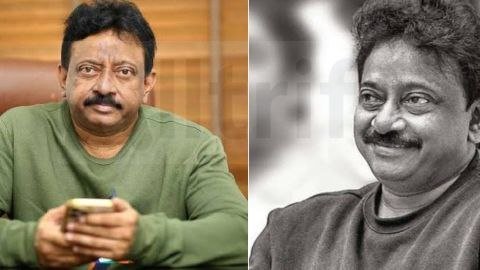Table of Contents
Overview of the Case
The case against noted filmmaker Ram Gopal Varma pertains to a chequered legal journey that commenced over seven years ago. The legal proceedings emerged from a cheque issued by Varma, which subsequently bounced due to insufficient funds. The aggrieved party in this matter, a production house, lodged a formal complaint, alleging that Varma had failed to honor his financial obligation. This initial action marked the beginning of a protracted litigation process that engaged both parties in a series of hearings and legal arguments.
This particular case is critical as it invokes Section 138 of the Negotiable Instruments Act, 1881, which addresses the issues surrounding dishonored cheques in India. Under this provision, a cheque is deemed to have been dishonored when it is returned unpaid due to lack of funds. The law allows for penalties that may include both monetary fines and imprisonment for the drawer of the cheque. The case thus raises important questions regarding financial accountability and the ethical implications of business dealings within the entertainment industry.
The crux of the legal conflict has revolved around proving the intent and knowledge of the accused about the account’s insufficiency at the time the cheque was issued. Throughout the proceedings, Varma’s legal team contested the claims of the production house, asserting various defenses which included questioning the validity of the contract underlying the financial transaction. However, the Andheri magistrate court in Mumbai ultimately adjudicated in favor of the production house, resulting in Varma’s sentencing to three months of imprisonment, highlighting the seriousness with which the judiciary considers violations of negotiable instruments. This case serves as a pivotal example of how contractual disputes are resolved within the framework established by Indian law.
Court Verdict and Sentencing
On October 1, 2023, a notable verdict was delivered concerning filmmaker Ram Gopal Varma in a cheque bounce case that had garnered significant media attention. The court sentenced Varma to three months of simple imprisonment for failing to honor a cheque worth ₹2.80 lakh issued to the complainant, who claimed that the payment was due for a completed service. This ruling highlights the judiciary’s stance on financial accountability, emphasizing that individuals and businesses must meet their financial obligations promptly.
In addition to the imprisonment sentence, the court mandated Varma to pay a compensation amount of ₹3.72 lakh to the complainant. This compensation not only covers the original amount of the cheque but also accounts for additional damages incurred by the complainant as a result of the bounced cheque. The stipulation of compensation in cheque bounce cases serves as an important legal mechanism to discourage defaults and ensure that aggrieved parties are made whole.
It is particularly significant to note that the court issued a non-bailable warrant for Varma’s arrest due to his failure to appear during the proceedings. This absence was interpreted by the judiciary as a lack of respect for the court’s processes, further complicating Varma’s legal situation. The implications of not complying with the court’s directives, particularly concerning the compensation payment, can lead to extended legal repercussions, potentially exacerbating his current predicament.
As the case unfolds, it sheds light on the serious nature of cheque bounce cases within the legal framework. The stringent measures taken by the court serve as a reminder of the legal ramifications that accompany financial disputes, reinforcing the necessity for individuals to honor their financial commitments diligently. Given Varma’s stature in the film industry, this case also accentuates the broader societal expectations surrounding accountability and integrity in financial dealings.
Ram Gopal Varma’s Response
In light of the recent court decision sentencing Ram Gopal Varma to three months of imprisonment in relation to a cheque bounce case, the filmmaker has publicly addressed the verdict through his social media platforms. Varma expressed his disappointment regarding the ruling and sought to provide clarity on the context that led to the legal complications surrounding a cheque issued to a former employee. In his statement, he emphasized that the situation stemmed from misunderstandings rather than malintent.
Varma elaborated on the circumstances that prompted the cheque to bounce, suggesting that it was tied to unresolved financial disputes that were more complicated than they appeared in court. He characterized his ongoing legal challenges as part of a “miscommunication” that he believes could have been amicably addressed outside of the judicial system. Despite his attempts to shed light on the matter, he refrained from delving deeper into specifics, citing the need to respect the legal process currently underway. This careful deliberation reflects his understanding of the sensitive nature of legal proceedings and the importance of not jeopardizing his case by making further public statements.
The filmmaker’s communications have elicited varied reactions from the public and media alike. While some fans continue to support him, viewing these legal troubles as an unfortunate setback, critics have raised concerns about his business practices and professionalism. The duality of these responses showcases the complexity of public perception when a renowned figure faces legal scrutiny. As the case develops, it remains to be seen how Varma’s narrative will influence ongoing discussions within public forums, and whether his explanations will garner sympathy or skepticism in relation to the past events that led to this legal predicament.
Impact on Ram Gopal Varma’s Career and Legacy
The recent legal controversy surrounding renowned filmmaker Ram Gopal Varma, in which he was sentenced to three months of imprisonment due to a cheque bounce case, undoubtedly raises significant concerns regarding his career trajectory and legacy in the Indian film industry. Known for his unconventional storytelling and iconic films, Varma has often been a polarizing figure. However, encountering legal issues such as this can have lasting repercussions on one’s professional standing and public image.
This incident poses a major risk to Varma’s reputation as a filmmaker. In an industry where personal integrity is frequently scrutinized, discrepancies in financial dealings can lead to a loss of credibility. Fans and peers alike may begin to question his judgement, especially concerning his financial commitments. Perceptions of professionalism and adherence to legal norms are critical in the cinematic realm, and any deviations can alienate stakeholders including investors and collaborators.
The impact extends beyond Varma himself; the repercussions of his actions may serve as a cautionary tale for other filmmakers. As the entertainment industry is steeped in financial transactions and partnerships, the importance of maintaining legal and financial decorum cannot be overstated. This incident may prompt other filmmakers to reassess their own financial practices and strive to uphold greater accountability, thereby ensuring a healthier environment for artistic expression.
In light of these developments, Varma’s future projects may also be at risk. Producers and studios could become hesitant to engage with him, fearing potential controversies. The potential fallout could stifle his creative output, which is particularly concerning for fans eager for his unique vision. Ultimately, the intersection of legal challenges and financial responsibility will play a vital role in determining Ram Gopal Varma’s legacy and future contributions to Indian cinema.





